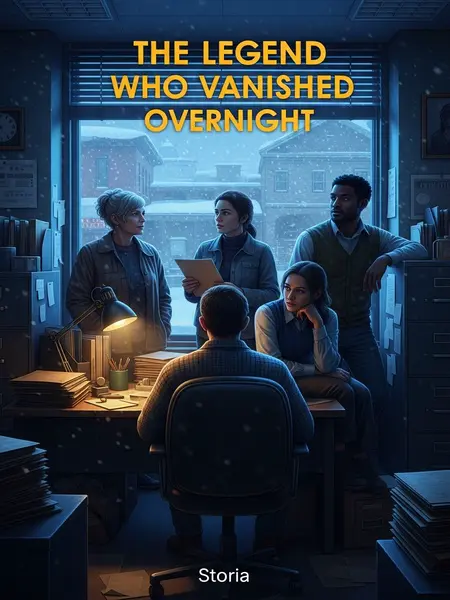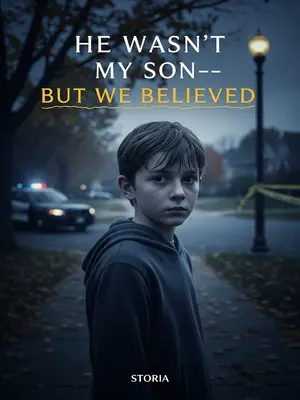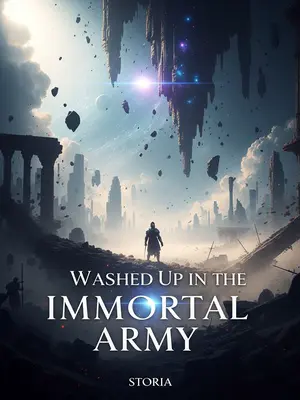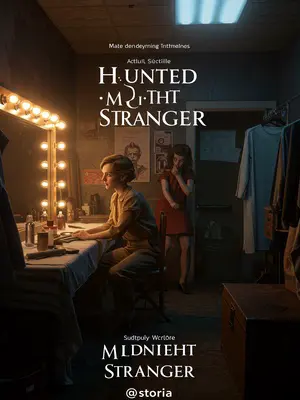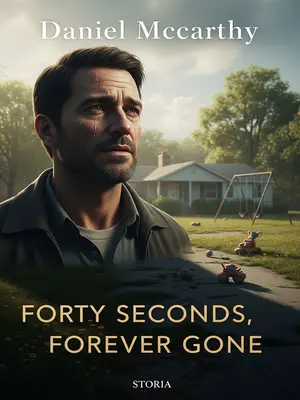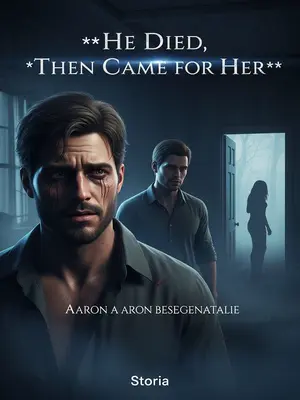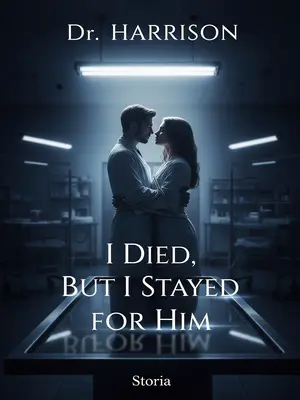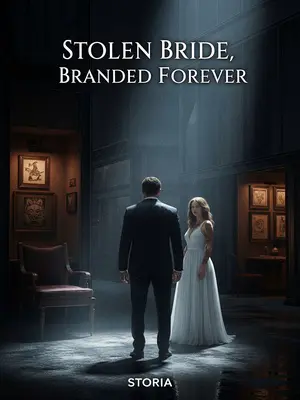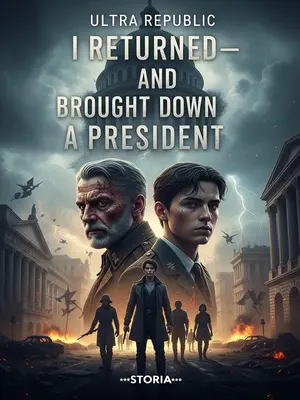Chapter 2: The Secret in the Attic
You could tell nobody wanted to be the one to cross that line. But the worry was real.
“Just open the door. I’ll take full responsibility.”
The boss was firm.
Big Mike’s place was in an old walk-up—six floors, no elevator. Everyone was out of breath by the time we got up there.
We huffed and puffed our way up, joking half-heartedly about how Mike must have calves of steel. By the fourth floor, even the fitness buffs were wheezing. No shame.
The Christmas wreath on his door read: “Let the spirit soar, next year will be even better!” Clearly written by him, complete with an exclamation point.
There was something almost childlike about the handwriting—big, looping letters, a little off-center. The exclamation point was thick and bold. No one else in the building would’ve written it like that.
The boss leaned in and sniffed at the crack in the door, then turned to me. “Record this.”
I pulled out my phone and aimed it at the group and the door.
My hands were shaking a little, but I tried to keep the camera steady. The boss wanted everything documented—just in case.
The boss patted the door. “Mike, Mike, you in there? We’re worried about you, so we came to check.”
No answer from inside. And really, none of us expected one.
The silence was thick. It felt like the whole building was listening.
“If you don’t open up, we’re coming in.”
Still nothing.
“Then you agree to us coming in.”
We all exchanged nervous glances, half-hoping for a miracle, half-dreading what we might find.
The boss took a crowbar and slowly worked it into the crack.
It was a hexagonal crowbar, about three feet long, with one sharp end and one flat, bent end. Like something out of Half-Life—Gordon Freeman’s specialty.
Someone behind me muttered, “All we need now is a hazard suit.” Even in tense moments, someone always cracks a joke.
An outward-opening door is harder to pry than an inward one.
Big Mike’s door opened outward. The boss worked at it for a while, but he was experienced, and the lock wasn’t strong.
You could hear the metal groan, the wood creak. Each pop made us flinch, but the boss just kept going, jaw set.
As the door finally opened, my hand holding the phone started to shake.
I was terrified that, just like in the movies, a horrible stench would hit us and there’d be a decomposing body in the living room.
Someone behind me whispered, “Please, God, let him just be out of town.”
Luckily, except for the usual sewer smell, there was nothing else.
The relief was almost dizzying. People let out the breath they’d been holding.
But we still couldn’t be sure.
The fear lingered, thick in the air. Nobody wanted to be the first to step over the threshold.
After the door opened, nobody wanted to go in first. After all, the leader should go first.
We all looked at the boss. He squared his shoulders and stepped forward, setting the crowbar aside.
The boss poked his head in, looked around, then stepped inside.
“Mike? Mike?” we called softly.
Our voices echoed off the walls. The place felt emptier than it should.
It was our first time inside Big Mike’s place. Sometimes, when he drank too much, we’d only ever drop him off at the door.
We’d always joked about what kind of place he kept, but none of us had ever seen it. Now, every step felt like trespassing.
His apartment had a six-plus-one layout, with an attic on the seventh floor.
The staircase to the attic was narrow, tucked behind a door off the main hall. The whole place felt bigger than expected.
Inside, it was spotless. The well-maintained hardwood floor gleamed softly.
You could almost see your reflection in the floorboards. It smelled faintly of lemon polish, like he’d cleaned right before leaving.
The furniture was simple—not old, not new.
There was a lived-in feel—nothing fancy, but nothing out of place. A couple of thrift store finds, maybe, mixed with a sturdy couch and a coffee table stacked with National Geographics.
All three bedrooms faced the sun and were connected to the living room, making the space feel big.
The sunlight poured in, warm and golden. It felt welcoming, but eerily quiet.
I held my phone and entered the first room. It was a tiny study.
The air was still, almost reverent. The walls were lined with books, most of them well-thumbed.
Inside was a reddish-brown desk, a wooden bookshelf, and an empty picture frame on the wall.
The frame was hung a little crooked, as if someone had just taken a photo out. The desk was neatly organized, pens lined up in a row.
On the desk was a sheet of glass, yellowed with age.
It looked like it might have covered a favorite photo or a certificate. I could almost see the outline of something that used to be underneath.
On the bookshelf was a battered Webster’s dictionary and a few elementary school textbooks.
The spines were cracked. Pages dog-eared. Some had doodles in the margins—little trains, stick figures. Maybe Mike kept them for nostalgia. Or maybe they belonged to someone else.
The second room was a spare bedroom, with a double bed. It seemed to be Big Mike’s room.
The sheets were crisp, the bed made military-style. There was a baseball cap on the nightstand, and a small alarm clock ticking quietly.
A train ticket on the headboard caught my eye. One of those rare red tickets.
It was pressed flat under a piece of glass, like a keepsake. The color had faded, but you could still make out the route and date.
The writing was faded, as if it had been rubbed over and over.
There were smudges around the edges, like someone had held it often, tracing the words with their thumb.
On the back was a line from a song: “I want to run away with you, to the farthest town.”
The handwriting was loopy, almost hopeful. It looked like a lyric scribbled in a moment of longing.
Run away with who? To which town? As far as I know, Big Mike never married, and I never heard him mention a girlfriend.
It was one more puzzle piece that didn’t fit. We’d always thought of Mike as a lone wolf, but maybe there was more to the story.
“Damn!” someone yelled from the next room.
My heart started pounding, adrenaline surging.
My grip tightened on my phone. I could hear my own pulse in my ears.
I didn’t expect it, but what had to happen, happened.
We all rushed to the master bedroom, but it was empty.
The tension snapped, replaced by confusion. People looked around, unsure what had caused the outburst.
A colleague stood on the stairs to the attic, waving for us to come up, his face looking like he’d seen something unbelievable.
He was pale, eyes wide, mouth working soundlessly. Whatever he’d found, it wasn’t what we expected.
My breathing sped up, my hand with the phone shook uncontrollably.
I could barely keep the camera steady. My palms were slick with sweat.
I remembered reading a book about a hundred ways to die. One chapter was about how to prevent the smell of a decomposing body from leaking out.
It said:
Putting a corpse in a plastic bag doesn’t work, because the gases from a decomposing human are enough to fill a hot air balloon.
The only way is in high temperatures and dry conditions.
Judging by my colleague’s expression—like he’d seen a ghost—I was sure Big Mike had used that method.
My imagination was running wild. Every horror story I’d ever read flashed through my mind.
I hesitated about going up. I was scared I wouldn’t be able to sleep at night, but curiosity pushed me forward.
Every step made my heart pound, and the creaking stairs made me feel like they might collapse any second.
The attic stairs groaned under our weight. Each step felt like it echoed forever.
Slowly, the attic came into view.
What I saw shocked me even more than if I’d found a dead body.
It was like stepping into another world—a secret universe tucked under the eaves.
In the thousand-square-foot attic was a giant model of a town.
It stretched wall to wall, sprawling across tables and platforms. Tiny houses, roads, trees—everything was there, down to the last detail.
Lakes, rivers, little towns, railways—every detail was a faithful replica of a real place.
You could see the shimmer of water, the glint of sunlight on painted windows. It was beautiful, almost heartbreakingly so.
The colleague who’d called us up found the light switch.
With a flick, the whole scene came alive. Streetlights flickered on, little cars glided along winding roads.
The city lights flickered on, the river began to flow, and a train whistled as it weaved through valleys and town.
A tiny locomotive chugged along its track, smoke curling from its stack. The river sparkled as fiber-optic lights mimicked the sun.
Everyone was stunned. We looked down at this miniature country like giants.
Nobody spoke for a long time. We just stood there, marveling at the care, the patience, the sheer devotion it must have taken.
“This must’ve cost five or six grand, right?” someone guessed.
Someone else whistled low. “No way. That’s at least fifty grand, easy.”
“Five or six grand? More like fifty or sixty thousand,” someone else replied.
There was a collective gasp. We all looked at each other, wondering how Mike had pulled this off. Honestly, I had no idea.
